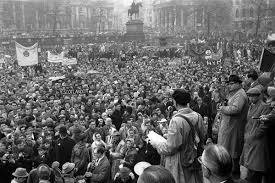### 1966: A Year of Cultural Revolution, Sporting Triumphs, and Global Strife
The year 1966 was a transformative period in global history, characterized by significant events that influenced politics, society, culture, and sports. From cultural revolutions to sporting milestones and geopolitical tensions, 1966 was a year of both turmoil and achievement.
#### Politics and World Events
One of the defining moments of 1966 was the continuation and escalation of the Vietnam War. The conflict intensified as the United States and South Vietnam launched Operation Masher/White Wing in January, aiming to clear Viet Cong insurgents from the Bong Son Plain. This offensive was part of broader efforts to contain communist influence in Southeast Asia, marking a significant chapter in the protracted and controversial Vietnam War.
In Africa, 1966 saw political instability and coups d'état that reshaped the continent's leadership. In Nigeria, a military coup in January led to the overthrow of the civilian government and established military rule under Major General Johnson Aguiyi-Ironsi. The coup highlighted tensions between Nigeria's ethnic and regional factions and set the stage for subsequent political turmoil and violence in the country.
#### Cultural and Social Changes
Culturally, 1966 was a time of artistic experimentation and social change. In literature, Truman Capote's non-fiction novel "In Cold Blood" was published, detailing the brutal murders of the Clutter family in rural Kansas and exploring themes of violence, crime, and the American Dream. Capote's innovative narrative style and meticulous research challenged conventional literary forms and became a landmark work in true crime literature.
In music, 1966 witnessed the release of the Beach Boys' album "Pet Sounds," which revolutionized the pop music landscape with its intricate melodies, innovative production techniques, and introspective lyrics. Led by Brian Wilson, "Pet Sounds" marked a departure from conventional surf rock and influenced subsequent generations of musicians with its emotional depth and artistic ambition.
#### Sports
In sports, the 1966 FIFA World Cup held in England captivated global audiences with dramatic matches and historic achievements. The tournament culminated in a memorable final at Wembley Stadium, where England defeated West Germany 4-2 after extra time to win their first and only World Cup title. Geoff Hurst's hat-trick in the final remains one of the most iconic moments in football history, solidifying England's place in sporting lore and showcasing the growing global popularity of the sport.
#### Conclusion
In conclusion, 1966 was a year of cultural revolution, sporting triumphs, and global strife that shaped the course of modern history. The Vietnam War continued to escalate, highlighting the complexities of Cold War geopolitics and military strategy. Political instability in Africa and literary innovations in literature reflected broader social tensions and cultural transformations. The success of the 1966 FIFA World Cup in England underscored the universal appeal of sports and the power of athletic achievement to unite nations and transcend political divisions. The events of 1966 continue to resonate in our understanding of the 20th century, illustrating the interconnectedness of politics, society, culture, and sports in shaping the contemporary world.




No comments yet
Be the first to share your thoughts!